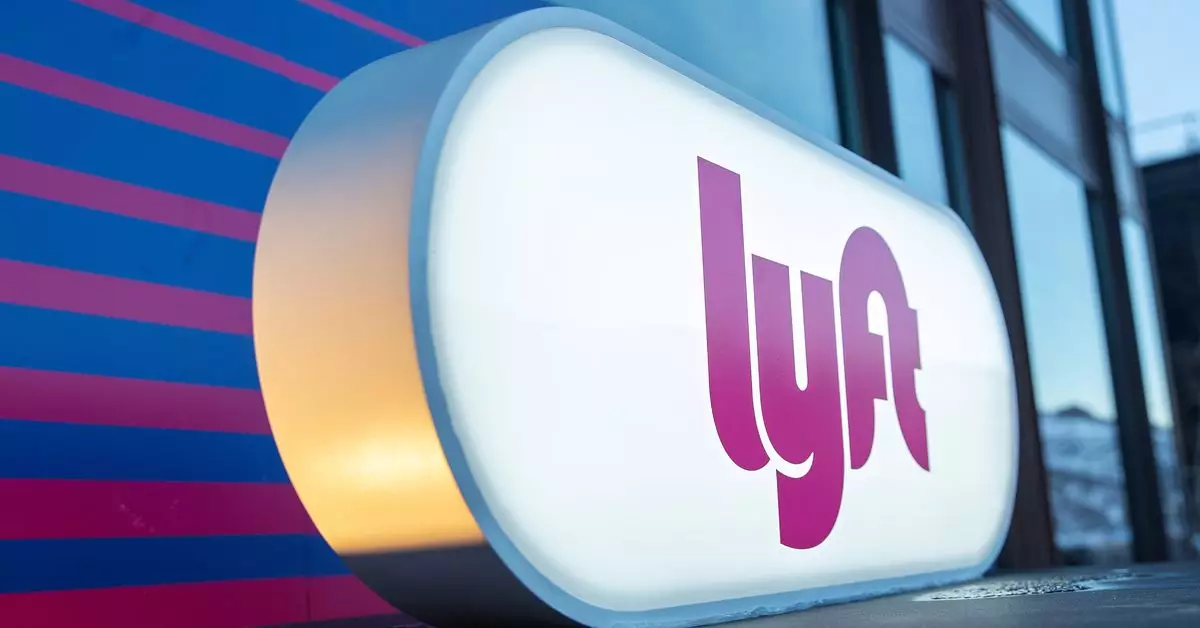The evolving landscape of the gig economy has recently witnessed a critical turn with the Federal Trade Commission’s (FTC) announcement concerning rideshare behemoth Lyft. The settlement outcome, which mandates a payment of $2.1 million, signals a stern warning about misleading advertising practices within the gig sector. By analyzing the implications of this settlement, we delve into the ramifications for drivers, companies, and the overall gigs economy.
At the heart of the FTC’s case against Lyft lies the company’s tendency to advertise inflated potential earnings for its drivers. Specifically, Lyft was accused of promoting hourly earnings based on the top-performing drivers rather than a more realistic average. For example, advertisements claimed that drivers could earn “up to $33” per hour in Atlanta, figures that did not reflect the typical earnings of the majority of the drivers on their platform.
This inflation not only misrepresented the earning potential for new and prospective drivers but also created an unrealistic image of what participation in the gig economy could yield. The FTC’s stance was clear: these claims misled workers in a significant manner, exacerbating financial misconceptions about grassroots-level earnings. Moreover, the inclusion of tips in these figures further complicated the truth, inflating earnings by as much as 30% according to FTC reports.
The settlement itself carries substantial weight, both legally and economically. It sets a precedent for how companies within the gig economy must communicate potential earnings. The FTC’s directive compels Lyft to manage its pay claims intelligently and more accurately, ensuring that they reflect what drivers typically earn—without the padding of tips to soothe misrepresented figures.
FTC Chair Lina M. Khan’s strong words emphasize the legal ramifications for companies that succumb to misleading practices: “It is illegal to lure workers with misleading claims about how much they will earn on the job.” This indicates a robust commitment to business accountability, particularly within sectors often characterized by a loose regulatory framework. As gig work continues to grow in prevalence, this settlement may invigorate future scrutiny of similar companies that may resort to deceptive advertising tactics.
Lyft’s response to the settlement sheds light on the company’s willingness to comply with the FTC’s guidelines. In an official statement, Lyft expressed its commitment to transparently communicating drivers’ earning potential. This acknowledgment of prior miscommunication signifies a pivot towards more responsible promotional practices.
The challenge ahead lies in adapting to the ongoing scrutiny from regulatory bodies while maintaining the drivers’ interest and satisfaction. Clear communication regarding earnings and expectations will be paramount for Lyft in rebuilding trust among its driver base. The settlement is a clarion call for the company: how they choose to navigate this can either reinforce their market position or erode it through ongoing dissatisfaction among drivers.
The FTC’s action against Lyft is part of a larger trend in regulatory oversight of the gig economy. This settlement arrives on the heels of increasing scrutiny from various state and municipal governments, which have been evaluating the constitutional fairness of how gig companies operate. Examples include Massachusetts’ law mandating a minimum wage for rideshare drivers and New York City’s parallel actions, which aim to protect driver earnings.
These developments show a shift towards greater accountability and improved working conditions for gig workers, who have often found themselves operating within precarious financial situations. Lyft’s recent struggles with misleading advertisements serve as a cautionary tale that may resonate beyond their company boundaries.
As the rideshare landscape continues to evolve, the FTC’s settlement with Lyft will undoubtedly shape how gig companies communicate with current and potential drivers. It amplifies the growing demand for transparency, equitable compensation, and deeper accountability within the gig economy. A carefully regulated environment paves the way for sustainable practices, ensuring that drivers can realistically assess their potential earnings without falling prey to inflated claims.
In the long run, fostering an atmosphere of transparent communication will not only benefit drivers but also companies like Lyft that depend on them. The outcome of this settlement stands as an important chapter in the larger narrative about the gig economy, encapsulating the struggles, aspirations, and demands of a new workforce. In this era, accountability will not just be a regulatory requirement; it will be integral to driving the gig economy forward.

